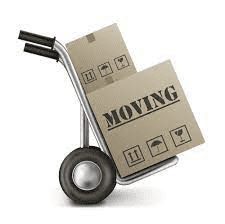Relocation is a major step in a person’s life cycle, but it is not without its risks and challenges. Relocating can decrease work stress and expand opportunities, but it can also disrupt family life. There are ways to minimise the risks and maximise the benefits of relocation. Listed below are some tips to help you plan for relocation.
Decide what area you’re moving to. Consider the cost of living in the new area. You’ll also need to consider where you’re going to work, and how long it will take to commute to work. Research the area’s housing options and the local vibe to determine whether it suits you and your family. If you’re relocating with children, research the schools to find out what they offer and how long it will take to get to work.
Save money. Start putting money aside each pay period for relocation. Don’t move without enough money. It’s never a good idea to spend too much money just to get settled. You can’t afford to make unnecessary purchases. Instead, you should make small changes in your spending habits to get a better understanding of your new area and its costs.
For a business relocation, know where to move your office. Office space needs to be large enough to accommodate your staff and work efficiently. If your office is small and has a lot of cubicles, make sure your new space has room for expansion. Consider the location of public transportation and social areas. It’s also best to have a floor plan so you can decide which items to move with you and which to leave behind. There are many other important steps to take before relocation, and planning for them will make the entire process much easier. You might find that Self Storage Swindon can help you to store important items if you’re moving in stages. Visit Self Storage Swindon for more information.
Make a list of all costs and expenses of your move. The list should include both direct and indirect costs. Include estimated costs of renting or buying in your target city. Don’t forget to include the cost of transporting furniture and equipment. Be sure to include provisions for repairs and refurbishments. A well-developed plan will help you stay on budget and reduce stress.
Budgeting is another essential step when planning for a relocation. Relocation requires a significant financial investment, and you should be prepared to save as much as you can. Set a realistic budget for your relocation, so that you know how much to spend and where to find the best deals. Also, be sure to furnish your new home or workplace with aesthetically pleasing items that you love. Remember that you are uprooting, so surround yourself with things that make you feel good.


